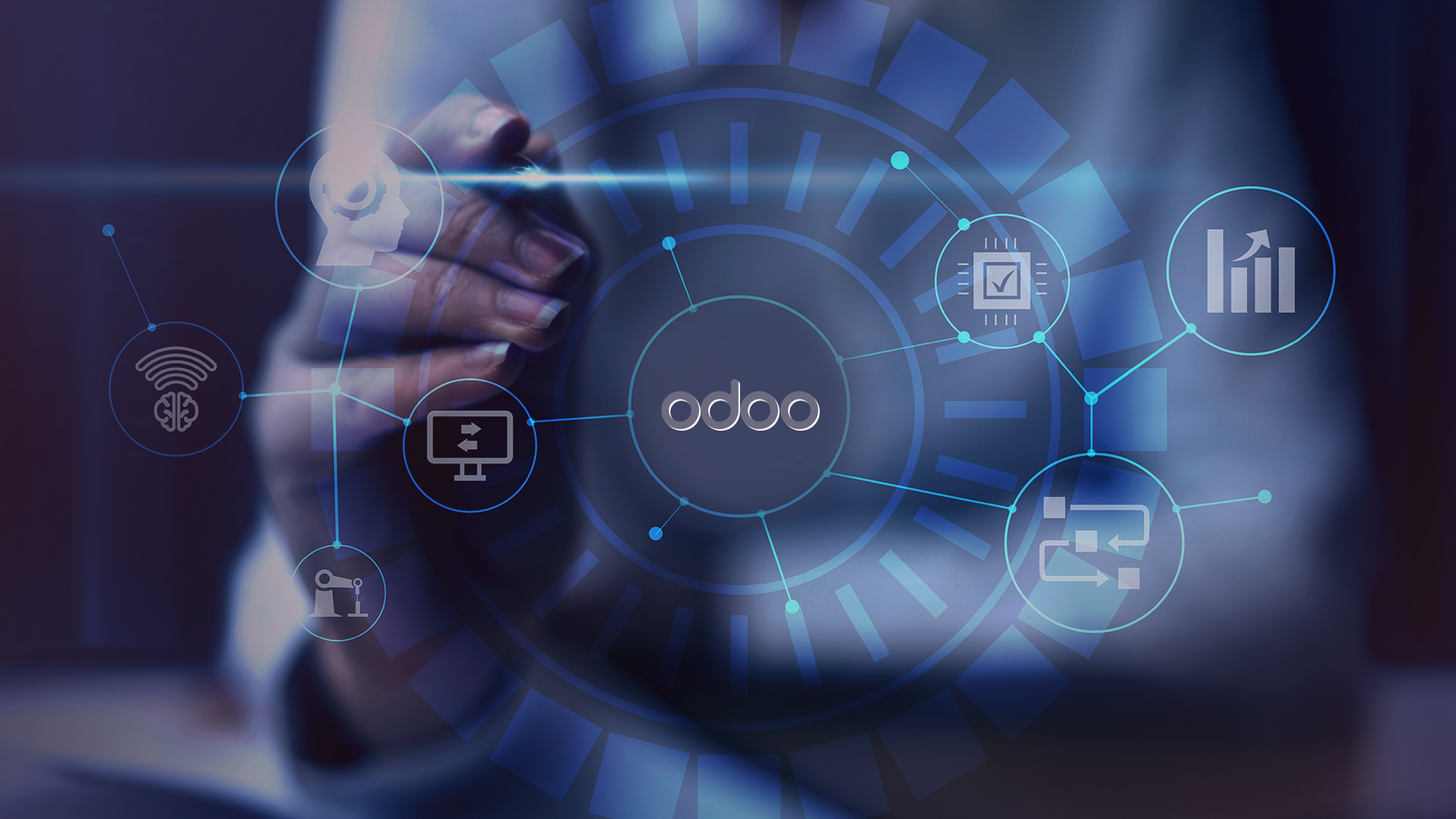The human race has come a long way in evolution, and medical treatment has been one of the key factors fueling this evolution. As humans, we have made great strides in defeating some of the most complex medical challenges. But technological advancements in the 21st century have enabled our race to make medical treatments more accessible and practical.
Modern healthcare institutions have to deal with numerous challenges that make their jobs far more difficult than they would usually be. Nonetheless, technological advancements are playing a significant role in making things easier. One of the greatest examples of this phenomenon is CRM solutions in healthcare systems.
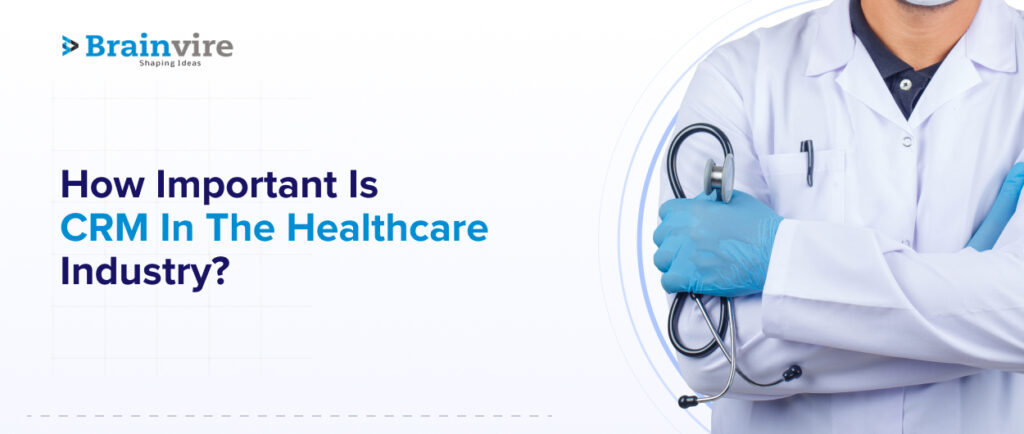
Every healthcare institution needs to mazke a profit to sustain its operations, and a solid relationship with customers can go a long way on this front. This is where a CRM in the healthcare industry can go a long way in boosting profitability. But this is just one of the many benefits of using a CRM system in a healthcare institution. So let’s dive into the subject’s nuances and determine why your healthcare institution needs a CRM system.
What Is CRM in Healthcare?
CRM has proven to be an invaluable asset across various industries, showcasing a multitude of uncountable benefits. Its impact has been particularly pronounced in recent times, playing a significant role in enhancing operations and there are outcomes of CRM across diverse sectors. The benefits of CRM in healthcare are many, but before exploring these benefits, it is imperative to understand what CRM is in healthcare. A healthcare CRM is a special tool designed to help healthcare institutions better manage their relationships with customers or patients. In simpler terms, a healthcare CRM will bring together different data sources and provide a comprehensive view of all patients’ information. This will include multiple criteria, including the patient’s demographics, behavioral traits, social background, financial background, contact information, and other relevant credentials.

A healthcare CRM system will help healthcare institutions build robust relationships with their patients. Besides that, these systems also help drive better engagement, acquire new patients, and retain loyal ones. The medical CRM software will effectively manage all patients from before they visit the healthcare provider until their treatment is completed and even beyond in some instances. As a result, this helps create a patient-centric environment that helps foster positive feedback from patients and helps build a robust reputation.
The Importance of Patient-Centered Care
Providing diagnosis and treatment for ailments is no longer the only focus of healthcare. With a comprehensive approach that puts the patient’s requirements, preferences, and general well-being first, the emphasis has switched to patient-centered treatment.
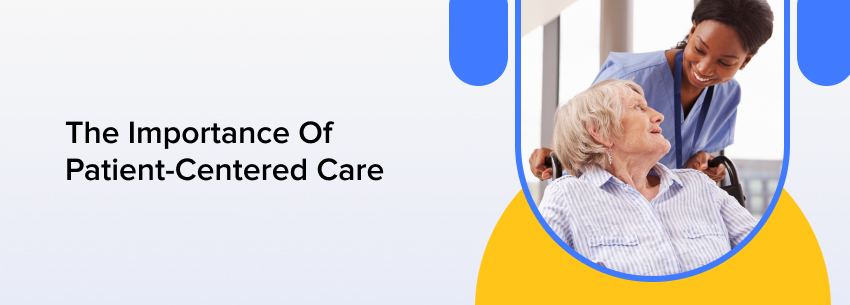
Every patient is unique, and patient-centered care acknowledges that each patient’s healthcare experience should be personalized to reflect that individuality. Personalizing patient contacts improves engagement and overall healthcare results. Customer relationship management technology and patient-centered care are essential in this process.
Patient-centered care is an approach that incorporates patients as active partners in their treatment plans and places them at the center of healthcare choices. It departs from the conventional “one-size-fits-all” method and customizes treatment to each patient’s unique set of circumstances. This method makes care more thorough and efficient by considering the patient’s emotional, mental, and social well-being in addition to their physical health.
CRM technology, extensively used in sectors like sales and marketing, has entered the healthcare industry to improve patient-centered care. CRM systems in healthcare allow medical professionals to gather, examine, and use patient data to develop individualized patient experiences. The following CRM medical tools improve patient engagement.
Salesforce Health Cloud: A popular medical CRM software designed specifically for healthcare organizations is Salesforce Health Cloud. In addition to patient profiles, treatment plans, and real-time patient data integration from electronic health records (EHRs). The software also makes it easier for care teams to collaborate and communicate in real-time.
HubSpot Healthcare CRM: Hospitals have access to an intuitive platform using HubSpot’s Healthcare CRM to manage patient interactions successfully. It provides solutions for marketing automation, patient interaction, and lead tracking. Hospitals can develop targeted campaigns and monitor patient interactions thanks to the platform’s integration with HubSpot’s marketing and sales capabilities.
Pipedrive Medical CRM: Pipedrive’s Medical CRM aims to enhance hospitals’ sales and marketing initiatives while streamlining patient communications. It offers capabilities for reporting, email monitoring, and pipeline management. Hospitals can effectively handle patient leads and track interactions thanks to the platform.
Zoho CRM for Healthcare: Hospitals and other healthcare facilities may customize the Zoho CRM for Healthcare solution to meet their unique needs. It has capabilities including patient management, scheduling appointments, and telehealth integration. Additionally, the technology provides safe patient communication and information storage.
Improving Operational Efficiency
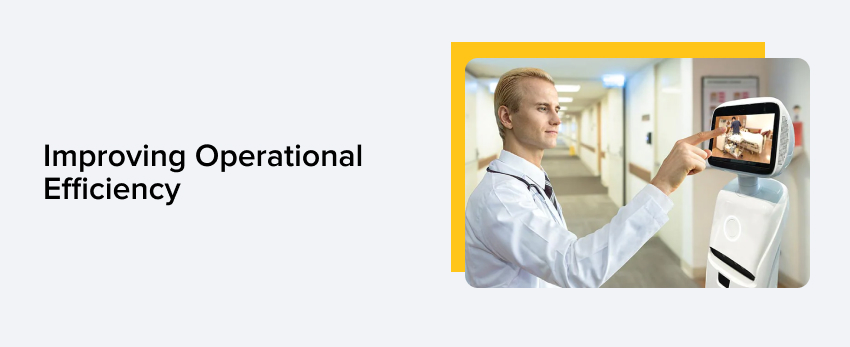
Managing patient data, synchronizing workflows, and ensuring efficient resource allocation present several issues for healthcare organizations. The good news is that Customer Relationship Management (CRM) systems provide creative ways to boost operational effectiveness and enhance patient care results.
The healthcare industry handles massive volumes of patient data, such as medical records, appointment calendars, billing data, and more. Manually managing this data can be arduous and error-prone, resulting in inefficiencies and subpar patient care.
Additionally, it might become difficult to coordinate processes across diverse care teams and departments, which hinders providing seamless patient experiences. CRM systems have become essential tools for healthcare organizations to improve operational efficiency and reduce administrative processes. The following is how CRM systems approach typical problems:
Centralized Patient Data: Electronic health records (EHRs), diagnostic findings, and patient contacts are just a few examples of the sources of patient data that CRM systems combine. This centralization guarantees healthcare professionals access to thorough and current patient data, facilitating improved decision-making and individualized care.
Appointment Scheduling: Scheduling appointments automatically is a key component of CRM systems. Online appointment scheduling, automatic reminders, and simple rescheduling are all available to patients. Minimizing no-show rates and reducing administrative work improves resource usage. Many firms build Appointment App for their personal data management.
Billing and Payment Management: By automating invoicing, monitoring payment status, and handling insurance claims, CRM systems streamline billing and payment operations. This shortens the time it takes for reimbursement and improves financial transparency for patients and healthcare professionals.
Thanks to automation and data integration, organizations can optimize operations, make data-driven choices, and allocate resources effectively to accomplish their goals accurately and efficiently. Let’s investigate the important benefits of automation and data integration in resource allocation, emphasizing how they boost productivity, cut expenses, and increase organizational performance.
Time and Cost Savings: By automating administrative processes, healthcare organizations may save time and decrease human labor while ensuring compliance with labor laws. This increases operational productivity and frees up staff members to concentrate on patient care. Reduced administrative load also results in long-term cost reductions.

Enhanced Resource Allocation: CRM systems offer information on resource availability, appointment trends, and patient demand. Healthcare organizations may maximize resource allocation by analyzing this data, ensuring that personnel, resources, and equipment are used effectively to satisfy patient demands.
Improved Patient Engagement: CRM solutions make it easier to communicate with patients in a personalized way via email, SMS, and social media. Personalized patient engagement raises patient satisfaction and encourages enduring patient loyalty.
Enhancing Collaboration and Communication
Effective communication and teamwork are essential for healthcare providers to deliver high-quality patient care. The smooth interchange of information and collaboration among departments and care teams may significantly impact patient outcomes and healthcare efficiency. In order to revolutionize healthcare communication and improve care coordination, customer relationship management (CRM) solutions come into play.
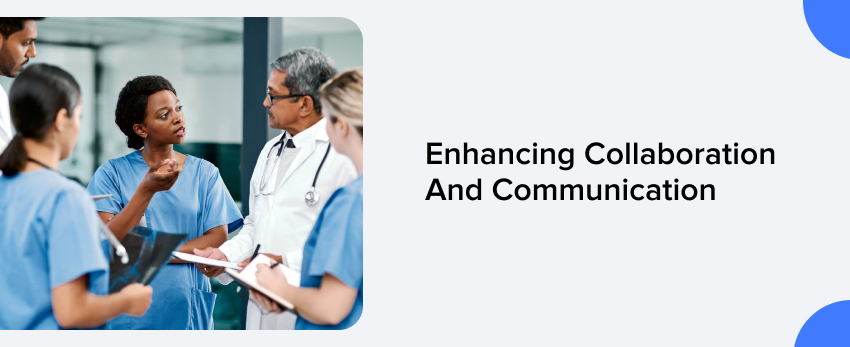
The value of excellent communication lies at the core of any flourishing healthcare organization. Healthcare personnel, including physicians, nurses, specialists, and support staff, must communicate vital patient data together and efficiently. Effective communication ensures that all parties engaged in a patient’s care are on the same page, promoting improved decision-making and a multidisciplinary approach to treatment.
CRM systems have become essential resources for enhancing the coordination and exchange of information amongst healthcare providers. These systems offer a centralized database where patient details, health information, treatment schedules, and test results may be safely kept and accessible by authorized workers from various departments. By streamlining the care process and promoting openness, this shared access to patient data lowers the possibility of mistakes and treatment delays.
Key CRM solutions that facilitate improved care coordination and communication include:
Cerner CareTracker: In long-term care settings, Cerner’s CareTracker is intended to improve care coordination and team communication.
Allscripts CareInMotion: A population health management tool called Allscripts CareInMotion aids healthcare organizations in enhancing care coordination and patient communication.
CareCloud: A cloud-based healthcare CRM called CareCloud offers capabilities for appointment scheduling, patient engagement, and improved provider-patient communication.
Luma Health: Using CRM technology, Luma Health’s patient engagement platform enhances patient interactions, appointment reminders, and care coordination.
Driving Growth and Business Development
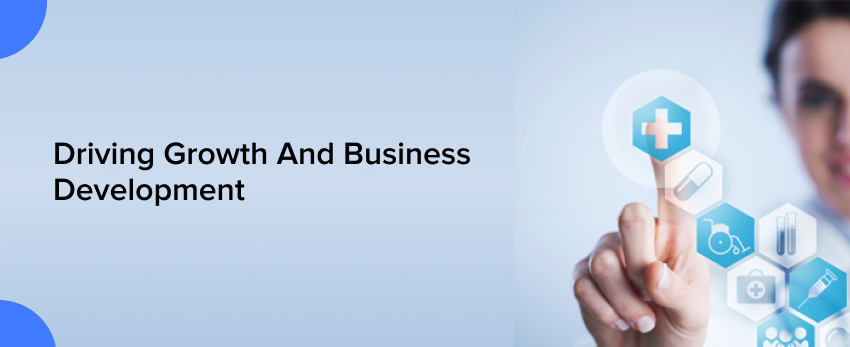
By promoting simplified communication, CRM assists healthcare organizations in attracting and keeping patients. Healthcare practitioners can interact with patients through various channels, including emails, text messages, and patient portals. This entails sending follow-up messages, appointment reminders, and personalized contact, which fosters a feeling of care and attentiveness and, as a result, improves the patient-provider relationship.
CRM systems let medical professionals provide individualized patient care. Healthcare providers can learn more about a patient’s preferences, medical history, and treatment options by gathering and analyzing patient data. By automating follow-up contact, CRM systems ensure patients get the assistance and information they need following their appointments or operations. Prompt follow-up shows dedication to patients’ well-being and promotes trust between patients and medical professionals.
CRM offers a thorough perspective of every patient’s contacts with the healthcare organization and is intended to increase patient engagement and satisfaction. However, its effects go beyond medical treatment and include marketing initiatives to draw in new patients and keep old ones returning.
Data management is one of the main functions of CRM in marketing and patient acquisition tactics. Healthcare practitioners may collect, store, and analyze a multitude of patient data using CRM systems, including demographics, medical history, preferences, and communication choices. Healthcare organizations may better understand their target audience by centralizing this data and adjusting their marketing communications.
Moreover, successful patient acquisition efforts must emphasize personalization, and CRM serves as a game-changer in this regard. Additionally, by utilizing the patient data housed in the CRM, healthcare providers can create personalized marketing efforts that appeal to particular patient segments. Furthermore, the use of CRM enables healthcare organizations to establish a distinctive and pertinent patient experience through the distribution of targeted emails, SMS reminders, or personalized offers. Consequently, implementing CRM strategies can significantly enhance patient engagement and retention. Therefore, incorporating CRM into patient acquisition efforts becomes essential for healthcare providers aiming to deliver tailored and effective marketing campaigns.
CRM makes it easier to maintain successful follow-up contact with potential patients. After initial inquiries or consultations, prompt follow-ups show a proactive attitude towards patient care and foster confidence with future clients. Healthcare providers may ensure no leads fall through the cracks by automating follow-up procedures with CRM.
The strength of data analytics in healthcare is its capacity to identify important market trends. Healthcare organizations may thoroughly grasp the current health requirements and demands in particular regions or populations by analyzing patient demographics, medical problems, treatment outcomes, and other pertinent data. With this vital information, healthcare professionals may better personalize their services to meet common health conditions, manage resources more effectively, and increase patient happiness.
Additionally, data analytics is essential for improving healthcare service offerings. Healthcare organizations may pinpoint areas that need improvement and create individualized treatment programs for patients by looking at patient comments, experiences, and outcomes. For instance, reviewing patient data and treatment outcomes can assist in identifying efficient remedies for specific illnesses, improving outcomes, and lowering treatment costs.
Ensuring Data Security and Privacy
When implementing a healthcare CRM, it is crucial to ensure the confidentiality and privacy of patient information. These systems follow strict rules like HIPAA (Health Insurance Portability and Accountability Act) to preserve patient privacy and are built with strong security features to safeguard sensitive data.
Data Encryption: CRM systems use encryption to protect patient data while it is transmitted and stored. This procedure ensures the data is unreadable and useless even if unauthorized access is gained.
Access Controls: CRM systems use role-based access controls to restrict data access to authorized individuals exclusively based on those personnel’s roles and responsibilities. This ensures that only those needing it for patient care may access sensitive information.
User Authentication: Before allowing access to the CRM system, users’ identities are often verified via multi-factor authentication. This increases security by a further layer and lowers the possibility of unauthorized access brought on by weak passwords.
Regular Security Updates: Vendors of CRM continually provide security patches and upgrades to fix newly identified flaws. Healthcare organizations must routinely update their CRM systems to be safe from dangers.
Addressing Concerns and Challenges
When implementing a healthcare CRM, protecting patient data and guaranteeing data security and privacy are essential objectives. While CRM systems provide many advantages for improving communication and care coordination, they also present several issues.
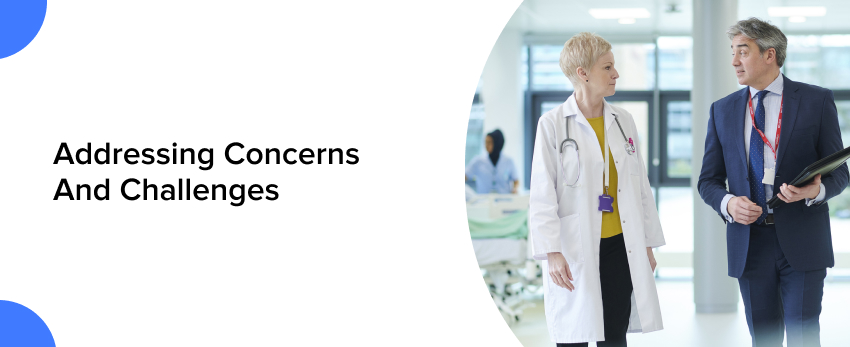
Data Breaches: CRM systems used in the healthcare industry may be subject to data breaches that allow unauthorized access to patient data. Regular risk assessments and adherence to industry security standards can reduce this risk.
Compliance with Regulations: Healthcare institutions must ensure their CRM systems abide by all applicable data privacy laws and rules, including HIPAA, GDPR (General Data Protection Regulation), and CCPA (California Consumer Privacy Act).
Vendor Selection: It’s critical to select a reliable CRM provider with a proven track record of data protection. Before deployment, healthcare organizations should carefully evaluate a vendor’s security precautions and reputation.
Employee Training: Data breaches are still frequently caused by human mistakes. Employees can avoid unintentional security breaches by receiving thorough training on data security procedures.
Cloud Security: Healthcare organizations must evaluate the cloud security procedures and ensure they comply with industry requirements for cloud-based CRM systems.
CRM Best Practices For Healthcare Industry
Customer relationship management (CRM) systems have become practical tools for boosting patient involvement, reducing administrative procedures, and increasing care coordination. Additionally, healthcare organizations must adopt best practices to efficiently utilize CRM. Furthermore, these procedures not only maximize the use of CRM but also ensure that healthcare practitioners can provide excellent patient care while abiding by stringent regulatory requirements. Consequently, implementing these best practices becomes crucial for seamless CRM integration in healthcare settings. Therefore, by following these guidelines, healthcare organizations can optimize CRM functionality and enhance patient care.
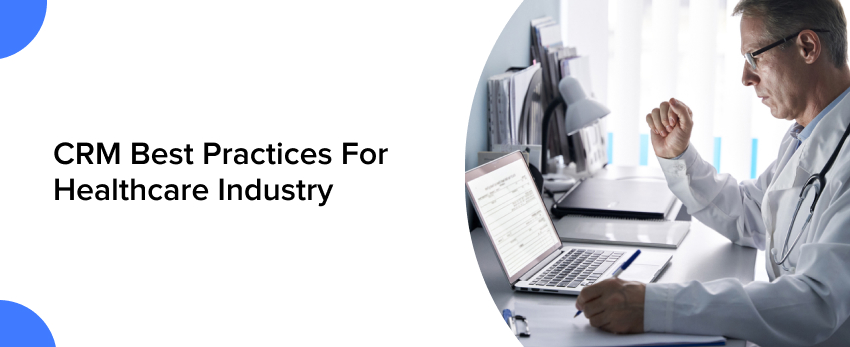
Understanding Patient Needs: Understanding each patient’s specific requirements and preferences is the first step in successfully implementing CRM. Healthcare practitioners should collect thorough information on patient demographics, medical histories, and preferences to personalize interactions. Custom software development agency may develop specialized healthcare solutions, focus marketing initiatives, and proactively address patient issues by analyzing patient data.
Data Security and Compliance: Protecting patient data is crucial in the healthcare industry. It is imperative to have strong data security measures and to guarantee compliance with industry standards like HIPAA, GDPR, and CCPA. To safeguard private patient data from possible breaches, healthcare organizations should select CRM solutions that prioritize data encryption, access limits, and frequent security assessments.
Seamless Integration with Existing Systems: Integration with current electronic health record (EHR) systems and other healthcare software must be smooth for CRM to provide its full potential. Healthcare personnel may access thorough patient information, expedite processes, and enhance care coordination across departments using a single platform.
Training and Adoption: CRM success depends on healthcare professionals receiving enough training and knowledge. Employees should know CRM features and how to use data wisely to improve patient encounters. CRM will become a crucial component of everyday operations if employee adoption is encouraged and continuing assistance is offered.
Conclusion
Customer Relationship Management (CRM) has transformed patient involvement, care coordination, and overall operational effectiveness in the healthcare sector. The obstacles to implementing CRM in the healthcare industry are unique, particularly regarding data security and compliance. To safeguard private patient data and win patients’ confidence, healthcare organizations must prioritize strong security measures.
To fully reap the rewards of CRM, organizations must adopt best practices such as patient requirements understanding, smooth system integration. CRM transforms into a crucial instrument for providing patient-centered care and fostering industry growth with practical implementation and employee acceptance.
FAQs
CRM knows as Customer relationship management. CRM, or customer relationship management, is vital in healthcare, as it enhances patient and stakeholder relationships, enabling personalized interactions, seamless care coordination, and efficient administrative procedures, leading to higher satisfaction and better health outcomes.
CRM enhances patient happiness and engagement in healthcare organizations in a number of ways. Healthcare professionals personalize patient interactions and treatment plans using patient data for preferences and medical history. CRM systems facilitate proactive and personalized communication, including reminders, follow-up messages, and customized health education materials, fostering care and attention.
In many facets of the healthcare sector, CRM systems are used to enhance patient care and operational effectiveness. For instance, aid healthcare professionals in managing patient contacts, follow-ups, and communication to improve patient experiences. CRM enables efficient information exchange across care teams, ensuring that all stakeholders know patients’ status and treatment plans. CRM allows focused marketing initiatives to attract new clients and foster patient loyalty.
Healthcare organizations should use CRM systems that easily link with electronic health records (EHRs) to access complete patient data. Automated appointment scheduling, reminders, and rescheduling tools are available to improve patient flow and lower no-show rates.
Through automation and data integration, CRM aids healthcare organizations in streamlining their procedures and increasing operational effectiveness. Healthcare providers may boost efficiency by automating administrative processes, including appointment scheduling, billing, and payment processing. This reduces human labor and minimizes mistakes.
Yes, security and privacy issues must be considered when deploying CRM systems in the healthcare industry. Healthcare institutions manage sensitive patient data that must be protected at all costs. Specific security and privacy considerations include data encryption, access controls, regulatory compliance, training, awareness, etc.
Related Articles
-
How Social CRM Boosts Sales and Lead Conversion In 2023?
The world of sales is evolving at a tremendous pace! This fast-paced industry is changing how companies manage their customers, bridging one of the most crucial bridges from the past:
-
Odoo POS System: 6 Reasons to Make the Switch
When it comes to running a retail store, having a point-of-sale system is a must. A POS system may considerably ease regular company operations and can even be revenue-generating in
-
Integration of Adobe Commerce Cloud and Odoo POS for an Omnichannel Experience
As technology improves, we find more and more ways to use it in our everyday lives. As a result, the barriers between what we do online and in real life



